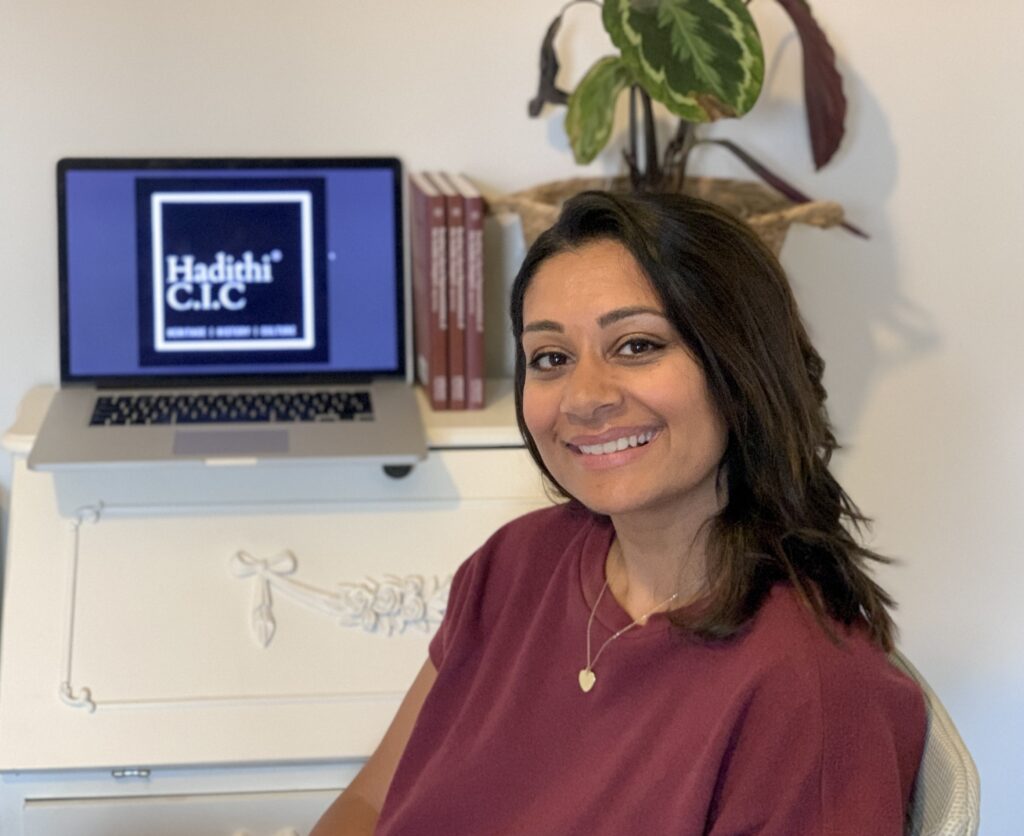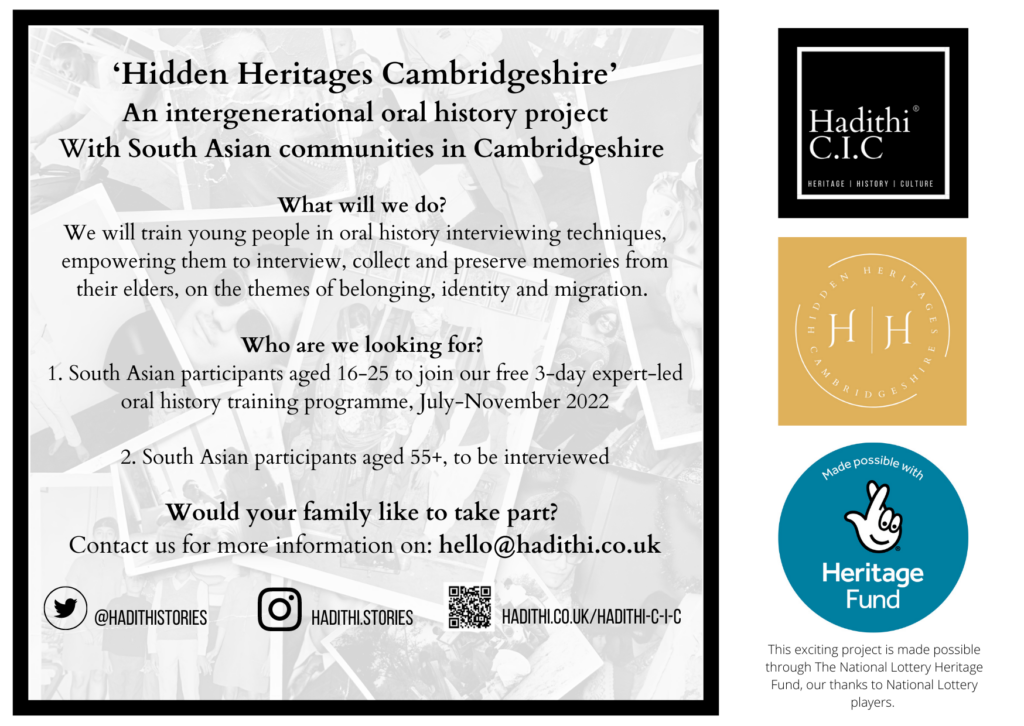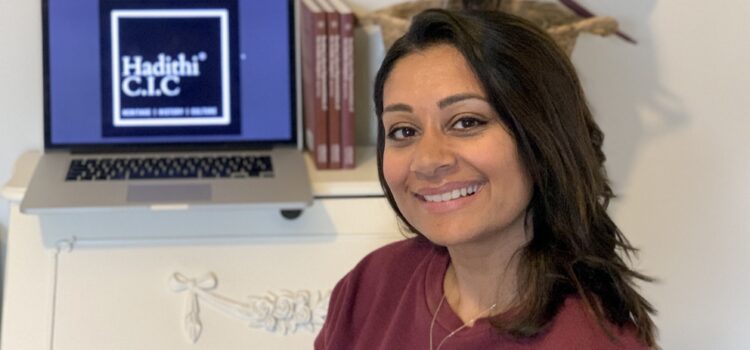By Dr. Maya Parmar, Director of Hadithi C.I.C
For me, identity is multidimensional, a mosaic of our own experiences and heritage, encompassing too those experiences of our family. My parents were born in Kenya, East Africa, we have roots in India, and I am born in England. I identify with both East Africa and India, as well as Britain. I think of my identity as complex and layered: a result of the multiple migrations my family have undertaken, across the generations.
This criss-crossing of identity, culture and journeying is something that has long interested me. Given the very personal interest I have, I have studied the subject in depth. I read my MA in postcolonial, literary, and cultural studies, later completing my doctorate in strategies of belonging having been displaced twice, from Gujarat to East Africa to Britain – the migration trajectory that my family took. What it is to be South Asian in Britain today is something that is gaining more and more traction, yet certain stories remain underrepresented and there is so much more to do, to ensure we don’t miss out on learning about and recording narratives of migration from the subcontinent.
Having spent nearly ten years in academia thinking about these ideas, now, I am interested in helping others explore their South Asian heritage in Cambridgeshire. Through the generous support of the National Lottery Heritage Fund, and with the social enterprise Hadithi C.I.C, I am leading a new project called Hidden Heritages Cambridgeshire: Cross-generational connections through memories.
The project commemorates two anniversaries in 2022: the 50th anniversary of the South Asian expulsion from Uganda in 1972, and the 75th anniversary of partition and independence in 1947. It is an intergenerational oral history project, with several aims:
- skill up South Asian young people in oral history techniques, forging lifelong skills, and empowering them to see themselves as active historians;
- reveal and capture marginal stories of migration that are quickly disappearing as generations pass on, through interviews with those 55+;
- create bonds and wellbeing between generations.

Come join us
We are looking for 16–25-year-olds to take part in a free expert-led oral history training programme, taking place on 3 separate days, July to November. The first training session is on the 26th July, the second on the 23rd August, with the final one to be confirmed in due course. We are excited to say that they will be held at the Museum of Cambridge, in their Enid Porter Room. The Museum is an independent social history museum that supports and encourages local people to connect and engage with their personal and local history, making it just the right place to host the training.
Alex Smaridge, Engagement Manger for Museum of Cambridge told us: ‘This project is very timely, given the anniversaries. They mark an opportunity and a need for the collection of memories and lived experiences of migration, before they are lost to time. We also believe that upskilling and supporting young people in history and heritage is a significant benefit for communities and individuals, opening new career prospects and inspiring lifelong learning.’
The project will capture important stories of migration, belonging and identity that are at risk of being lost, whilst offering young people important skillsets. We anticipate that being part of such a project will be enriching for young people, offering valuable skills that can be communicated as part of a résumé, university, or job application. Following programme completion participants would have gained a comprehensive oral history skillset, from developing an interview structure, to conducting interviews, writing up summaries and producing outputs. And, we hope, also have a new perspective on British history and South Asian heritage.
As well as young people, we are looking for those aged 55+ to be interviewed. Through participation in being interviewed there is the opportunity to tell and store family memories and histories, so that they aren’t lost. We are partnered with Cambridgeshire Archives, who will ensure that the oral history stories collected will be deposited in permanent digital storage. We hope that cross-generational interactions between interviewer and interviewee, about important migration memories, will forge bonds and new understandings too.
If you’re interested in exploring who you think you are, get in touch with us on hello@hadithi.co.uk or find us online. The project team will also be at the Big Weekend and Mela, 3 July 2022, so come and find us there to have a chat and take part in our family tree activity.
Twitter: @hadithistories
Insta: hadithi.stories

